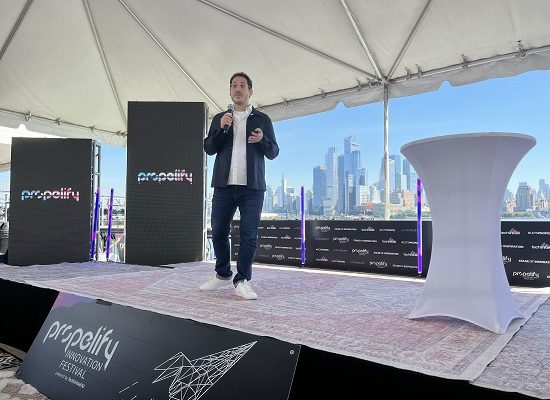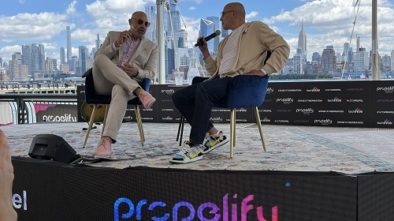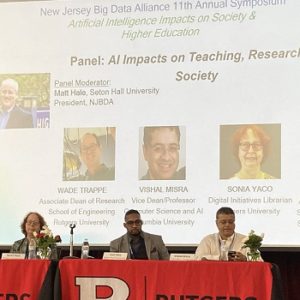Propelify 2023 – How AI is Disrupting the Future of Work
By Rob Rinderman
At Propelify, which took place in Hoboken earlier this month, the focus was on artificial intelligence (AI) in all its forms. There, Raphael Ouzan, founder and CEO of A.Team (New York), discussed his AI-based team-formation platform, which enables tech leaders to assemble, deploy and manage cloud-based teams — high-performing, distributed-product teams focused on building transformative new products.
A.Team is powered by a members-only network of engineers, product managers, designers and marketers who come together to escape rigid structures to work collaboratively on problems that matter to them, alongside teammates they enjoy collaborating with, he said.
According to Ouzan, generative AI, a type of artificial intelligence that generates images, texts, videos and other media in response to input prompts, will be a real game changer in how teams operate. Two of the most popular AI generators include ChatGPT and DALL‧E 3, both of which were created by Open AI (San Francisco). Generative AI may well be the fastest-growing disruptive technology we will experience during our lifetimes, he said.
The Covid pandemic hit just a few weeks after A.Team successfully completed its initial $5 million seed funding round, according to Crunchbase. The company added another $55 million in Series A financing, which it completed mid-May 2022.
Today, A.Team’s community-based platform brings together approximately 9,000 tech workers at all levels of seniority. The goal is to enable companies to build the customized tech-related teams they need. Their organization’s client base ranges from Fortune 10 companies to startups, said Ouzan.
“Work structures are shifting and changing, as there has been a disruption of the traditional employee–employer relationship,” he said. “Worker expectations have changed … They [workers] value time more than in the past.”
Meanwhile, companies expect more efficiency and discipline from workers, and enterprises are trying their best to navigate a volatile environment, including the ups and downs of public financial and private funding markets (not to mention inflation and interest rate spikes).
Frequent “black swan” events are also forcing companies to adapt, according to Ouzan. It all adds up to an unprecedented level of change, amidst a skill gap issue for employees in general.
Generative AI is forcing both large and small companies to adapt. In a sense, all organizations are in startup mode when it comes to dealing with generative AI. Machines excel in using structured data, but humans are much better at idea execution, especially after experimentation and testing.
Customer expectations are also shifting. As an example of how they affect B2C (business-to-consumer) businesses, websites must now function well, with attractive and user-friendly interfaces. If sites do not measure up, consumers will be gone at the speed of a mouse click, leaving abandoned shopping carts in their wake.
Ouzan said, “The future of work is smaller teams, where agility is the key. Average revenue per full-time employee is growing for many enterprises. Teams, tools and workflows are increasingly important.” He added that 73 percent of companies are currently using blended teams of freelancers and full-time employees, which bodes well for A.Team.




